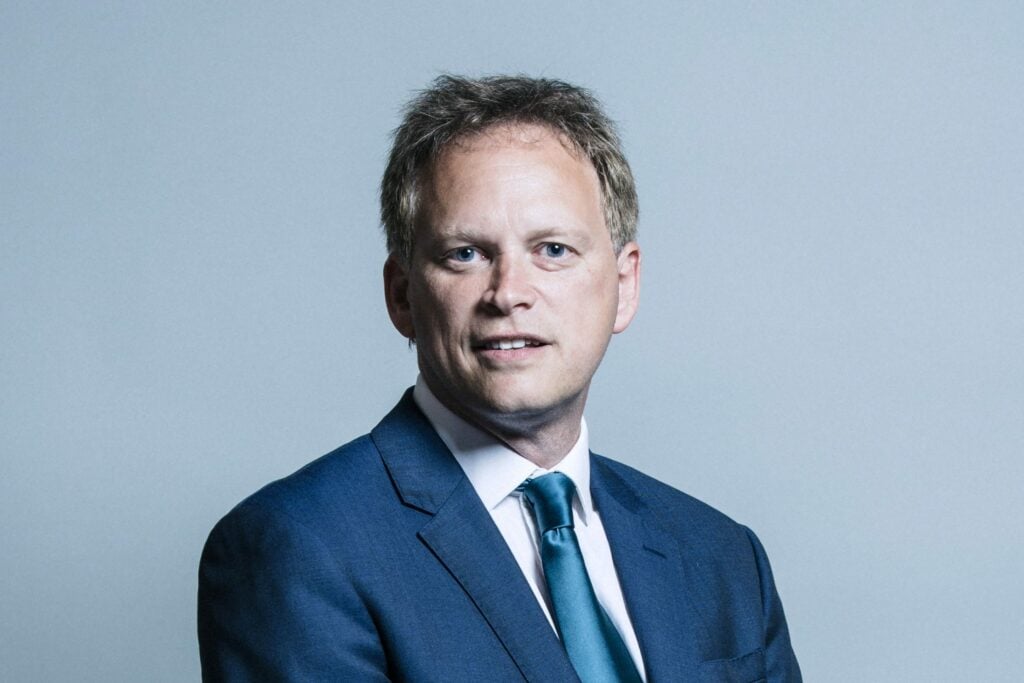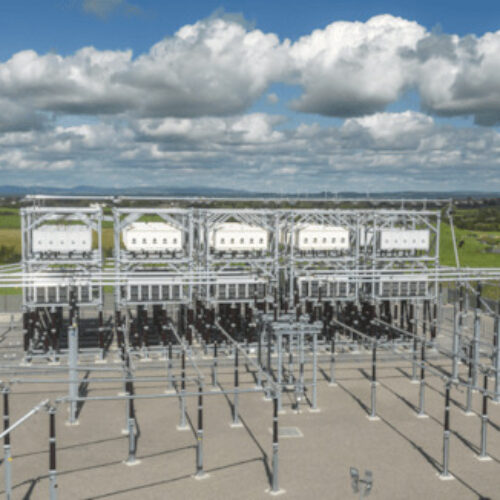Grant Shapps has been appointed as Secretary of State for the Department of Business, Energy and Industrial Strategy (BEIS), following Jacob Rees-Mogg resigning.
The change comes as part of the wider cabinet reshuffle as Rishi Sunak steps into the top job as Prime Minister. His predecessor Liz Truss resigned after just 45 days in office on 20 October, prompting a leadership contest.
Candidates needed the backing of 100 Conservative MPs within the first round of the contest to run for leader of the party and therefore PM, however Sunak’s competitors – including former Prime Minister Boris Johnson – pulled out, leaving him to secure to role on Monday 24 October.
As he took office yesterday (25 October), Rees-Mogg submitted his resignation in a hand-written letter, stating: “As you will rightly want your own team I would be grateful if you would convey my resignation as secretary for business, energy and industrial strategy to the King.”
The difficult to decipher letter from the North East Somerset MP is dated Saint Crispin’s Day, the Christian feast day on 25 October marking the martyrdom of twins Crispin and Crispinian, the patron saints of cobblers, leather workers, tanners, saddlers and glove, lace and shoemakers who were beheaded by the Roman emperor Diocletian in the third century. The holiday was removed from the Roman Catholic Church’s calendar following Vatican Two.
Rees-Mogg’s brief tenure and legacy
Rees-Mogg was a controversial BEIS secretary, having been a vocal supporter of fracking in the UK, referring to climate science as “alarmism” and criticising the closure of coal-fired power plants in Britain, amongst other criticisms of the green energy transition in his time as an MP.
In his brief time in the role he tried to dispel the view that he was a green energy sceptic, including writing an opinion piece for the Guardian in which he said: “I am in favour of intelligent net zero in which green energy will play the biggest role.”
Yesterday, following his official resignation, Rees-Mogg announced that the Energy Prices Bill had gained royal assent. The Bill enshrined the support measures announced over the last few months into law, including the Energy Price Guarantee for domestic consumers and Energy Bill Relief Scheme for businesses and non-domestic properties.
However, it attracted criticism from both the renewables and utility sectors. It includes a measured called Cost-Plus Revenue Limit, which would act as a de facto windfall tax on renewable energy generators. Critics said this sends a poor signal to investors keen to help the renewable sector grow, which is key to securing Britain’s energy sector, in particular in light of the current energy crisis driven by high gas prices.
Meanwhile, energy suppliers penned a letter to the government expressing concerns over the “unexpected” new measures proposed in the Energy Prices Bill which grant ministerial powers in the energy sector.
“The proposals concerning the Cost-Plus Revenue Limit are significant enough in themselves to put investment in the UK’s low carbon industry in jeopardy at a time when it is most needed to ensure our long-term energy security,” the letter stated.
“Clauses in the Bill giving the Secretary of State powers to intervene to extend duration and intervene in the level of the Default Tariff Cap are equally concerning”.
Shapps: EV supporter to take on energy crisis
With Rees-Mogg’s exit, Shapps is taking on the department at a crucial time, with significant challenges awaiting him as winter approaches.
Shapps was Secretary of State for Transport between 24 July 2019 and 6 September 2022, before being appointed as Secretary of State for the Home Department under Truss.
In his role leading the Transport department, he worked on the Transport Decarbonisation Plan – which was belatedly published in July 2021 – a crucial document that drove forwards smart charging of electric vehicles (EVs) as well as the phase out of the sale of petrol and diesel heavy goods vehicles.
Following on from this, Shapps introduced the Electric Vehicle Infrastructure Strategy, which unveiled a raft of measures to support the transition to EVs.
“The scale of the climate challenge ahead of us all is well known and decarbonising transport is at the very heart of our agenda,” said Shapps when it was released in March 2022.
“That’s why we’re ensuring the country is EV-fit for future generations by the end of this decade, revolutionising our charging network and putting the consumer first.”
Environmental secretary: Controversial Jayawardena resigns
Along with the change in BEIS secretary, environmental secretary Ranil Jayawardena MP also tendered his resignation to Sunak yesterday.
In the MP for North East Hampshire’s resignation letter he expressed his pride in laying the groundwork to “free our farmers”.
“We must ‘free our farmers’ too. After much work in my tenure, my successor will now be able to take forward the plans set in motion to improve our nation’s environmental land management schemes, making them easier to farmers to access, removing current areas of frustration, updating and replacing outdated regulations, and going further and faster to deliver the ambitions of the Conservative Party for food, farming, climate and the environment,” he wrote.
“From food security and backing British farmers, to water security and growing our rural economy, I am sure that HM Government will continue to deliver, and you will have my support in doing so.”
Jayawardena drew criticism from the solar sector earlier this month for plans to redefine land categories, extending the definition of Best and Most Versatile (BMV) land to Grade 3B. The bulk of solar farms are currently developed on 3B land, which is considered moderate quality agricultural land.
The redefinition therefore would have a significant impact on the rollout of solar farms across Britain, despite its relatively small land use requirements and negligible impact on food security or farming – in fact, farmers are broadly in favour of solar, which offers an additional revenue stream.
North East Hampshire has drawn attention this year for a well-publicised opposition campaign against a solar farm between Bramley and Silchester. The application for the site – dubbed Bramley Firth – was initially submitted to Basingstoke and Deane Borough Council in 2020, and rejected in 2021. An appeal was then launched, which was voted down in April 2022. Further adaptations to the site are being considered.
In a statement given to local press about the solar farm earlier this year, Jayawardena, said: “It’s our duty to protect our environment for the next generation, so we must seize the huge potential of offshore wind to power our nation and not be blown off course.”
Jayawardena’s move to reassess land use categories drew particular concern as it followed comments from both Sunak and Truss during the previous Conservative leadership campaign over the summer.
Truss notoriously referred to solar farms as “paraphernalia”, suggesting that they had a negative impact on food security in Britain.
While Sunak argued that Westminster understands the needs of rural communities, which means “making sure our fields are used for food production and not solar panels,” within a hustings.
Defra experienced Thérèse Coffey takes over as environmental secretary
Jayawardena has been replaced by Thérèse Coffey, who previously worked as Secretary of State for Health and Social Care, and Deputy Prime Minister, between 6 September 2022 and 25 October 2022.
The environmental sector has broadly welcomed the appointment, given the MP for Suffolk Coastal’s previous work within the Department of Environment, Food and Rural Affairs (DEFRA) under Michael Gove.
She was a minister in DEFRA from 25 July 2019 and 8 September 2019, and then parliamentary under secretary of state at Defra from 17 July 2016 to 25 July 2019.
Other notable government appointments include Jeremy Hunt being re-appointed Chancellor of the Exchequer, Mark Harper MP as Secretary of State for Transport and Gove MP as Secretary of State for Levelling Up, Housing and Communities.





